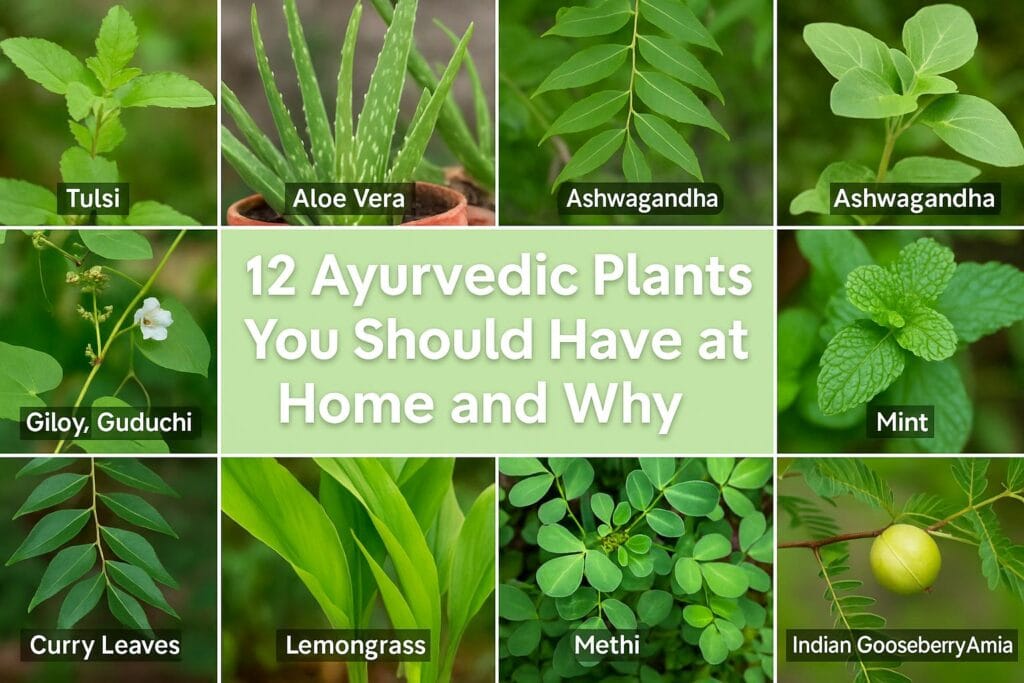12 Ayurvedic Plants You Should Have at Home and Why
Introduction
Ayurveda, the ancient Indian system of natural medicine, has long embraced the power of plants to heal, nourish, and balance the body. As interest in holistic health grows, many people are turning back to nature — and what better way than growing Ayurvedic plants right at home? These plants are not only beautiful and low-maintenance but also act as natural remedies for a variety of health concerns.
Whether you’re growing herbs in pots, on a balcony, or in a backyard garden, incorporating Ayurvedic plants into your space offers countless benefits. In this guide, we explore 12 essential Ayurvedic plants that are easy to grow at home and explain why you should include them in your green sanctuary.
1. Tulsi (Holy Basil)
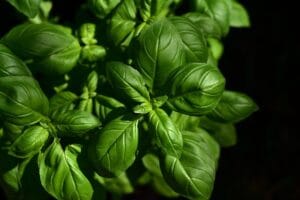
Botanical Name: Ocimum sanctum
Why You Need It: Tulsi is considered sacred in Hindu culture and is revered as the “Queen of Herbs” in Ayurveda.
Health Benefits:
- Boosts immunity
- Relieves stress and anxiety
- Treats respiratory issues like cough, cold, and asthma
- Purifies the air and promotes positive energy
Growing Tips:
- Grows well in pots or directly in the ground
- Needs full sun and well-drained soil
- Water moderately and prune regularly
🌟 Fun Fact: Drinking Tulsi tea daily can help detox the body naturally.
2. Aloe Vera
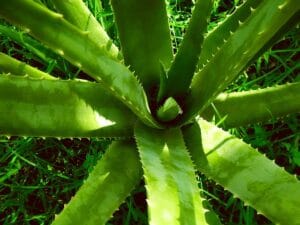
Botanical Name: Aloe barbadensis miller
Why You Need It: Known as the “Plant of Immortality,” Aloe Vera is a miracle healer.
Health Benefits:
- Treats burns, wounds, and cuts
- Improves digestion and relieves acidity
- Moisturizes skin and strengthens hair
- Boosts immunity and reduces inflammation
Growing Tips:
- Thrives in bright light and dry conditions
- Water only when the soil is dry
- Ideal for pots and indoor spots with sunlight
🌟 Pro Tip: Keep a pot of Aloe in your kitchen for instant burn relief.
3. Neem
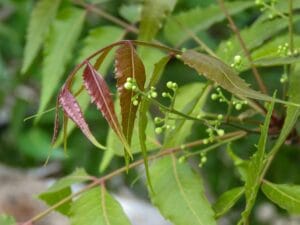
Botanical Name: Azadirachta indica
Why You Need It: A natural antibacterial and detoxifier, Neem is a cornerstone of Ayurvedic healing.
Health Benefits:
- Purifies blood and skin
- Treats acne and dandruff
- Strengthens gums and teeth
- Natural insect and mosquito repellent
Growing Tips:
- Needs full sun and well-drained soil
- Water deeply but infrequently
- Can be grown as a small tree in your backyard
🌟 Fun Fact: Neem twigs have been used for centuries as natural toothbrushes.
4. Ashwagandha
Botanical Name: Withania somnifera
Why You Need It: Known as “Indian Ginseng,” Ashwagandha is a powerful adaptogen.
Health Benefits:
- Reduces stress and anxiety
- Improves stamina and vitality
- Supports hormonal balance and better sleep
- Enhances brain function
Growing Tips:
- Thrives in dry, sandy soil
- Needs full sun and occasional watering
- Best grown in warm climates or indoors with sunlight
🌟 Pro Tip: Roots can be dried and used in powder form after 6 months of growth.
READ ALSO: 10 Best Indoor Plants for Oxygen: Breathe Clean Air Naturally
5. Giloy (Guduchi)

Botanical Name: Tinospora cordifolia
Why You Need It: Giloy is a renowned immunity booster and detox herb.
Health Benefits:
- Treats chronic fever and infections
- Detoxifies liver and blood
- Reduces inflammation and arthritis pain
- Improves digestion and respiratory health
Growing Tips:
- Grows well as a climber with support
- Needs partial sunlight and moist soil
- Can be propagated easily from cuttings
🌟 Tip: Boil Giloy stem in water for a powerful immunity-boosting drink.
6. Brahmi
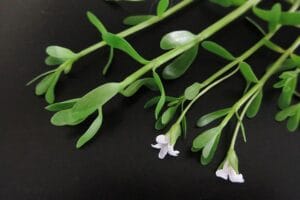
Botanical Name: Bacopa monnieri
Why You Need It: A brain tonic used in Ayurvedic treatments for thousands of years.
Health Benefits:
- Enhances memory and concentration
- Reduces anxiety and mental fatigue
- Improves cognitive function
- Supports hair and scalp health
Growing Tips:
- Prefers moist, shady conditions
- Can be grown in containers or hanging baskets
- Requires regular trimming for healthy growth
🌟 Fun Fact: Often used in Ayurvedic oils for brain and hair health.
7. Turmeric (Haldi)

Botanical Name: Curcuma longa
Why You Need It: A powerful anti-inflammatory and antioxidant spice.
Health Benefits:
- Treats joint pain and inflammation
- Aids in digestion and liver function
- Improves skin complexion
- Supports immunity and wound healing
Growing Tips:
- Grows from rhizomes (underground stems)
- Needs warm, humid conditions
- Harvest after 8–10 months for mature roots
🌟 Pro Tip: Make turmeric paste for skin glow and joint pain relief.
8. Mint (Pudina)
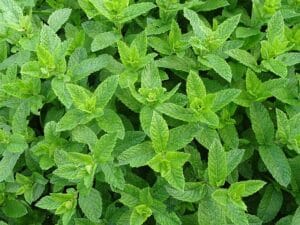
Botanical Name: Mentha
Why You Need It: Cooling and digestive herb used widely in Ayurveda and kitchens.
Health Benefits:
- Eases indigestion and bloating
- Freshens breath and relieves headaches
- Soothes sore throat and cough
- Improves focus and mood
Growing Tips:
- Grows quickly in pots or soil
- Prefers moist, shaded locations
- Prune often to avoid overgrowth
🌟 Bonus: Add mint to your tea or chutneys for extra flavor and health.
9. Curry Leaves (Kadi Patta)

Botanical Name: Murraya koenigii
Why You Need It: More than just a flavorful herb — it’s packed with medicinal value.
Health Benefits:
- Strengthens hair and prevents greying
- Controls blood sugar levels
- Aids digestion and weight loss
- Rich in antioxidants
Growing Tips:
- Requires warm climate and well-drained soil
- Grows well in pots with good sun exposure
- Water moderately and prune regularly
🌟 Tip: Use fresh leaves in cooking or dry them for powder.
10. Lemongrass
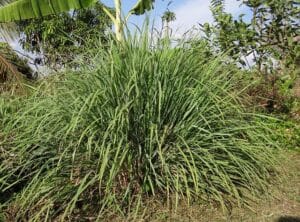
Botanical Name: Cymbopogon citratus
Why You Need It: Aromatic grass with detoxifying and mosquito-repelling properties.
Health Benefits:
- Relieves stress and insomnia
- Supports digestion and detox
- Rich in antioxidants
- Natural bug repellent
Growing Tips:
- Grows fast in sunlit areas
- Requires moist, well-drained soil
- Can be grown in containers or garden beds
🌟 Try This: Use lemongrass in teas or boil in water for a calming herbal drink.
11. Fenugreek (Methi)
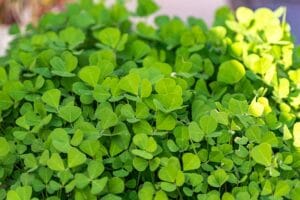
Botanical Name: Trigonella foenum-graecum
Why You Need It: Multipurpose herb with strong medicinal value.
Health Benefits:
- Regulates blood sugar and cholesterol
- Promotes hair growth and scalp health
- Aids weight loss and digestion
- Eases menstrual discomfort
Growing Tips:
- Grows quickly from seeds
- Needs full sun and well-drained soil
- Can be grown in pots and harvested in 20–30 days
🌟 Pro Tip: Soak methi seeds overnight and eat for improved digestion.
12. Indian Gooseberry (Amla)
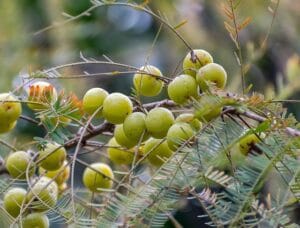
Botanical Name: Phyllanthus emblica
Why You Need It: A powerhouse of Vitamin C and longevity.
Health Benefits:
- Boosts immunity and metabolism
- Improves hair and skin health
- Acts as a liver tonic
- Enhances eyesight and digestion
Growing Tips:
- Can be grown as a small tree in warm climates
- Requires deep soil and sunlight
- Water deeply once a week
Pro Tip: Drink Amla juice on an empty stomach for detox and energy.
Why You Should Grow Ayurvedic Plants at Home
- 🌿 Holistic health: Natural remedies for common ailments
- 💧 Eco-friendly: No chemicals or synthetic drugs
- 💸 Cost-effective: Save money on supplements and skincare
- 🧘 Wellness routine: Teas, powders, pastes, oils — all from your garden
- 🌱 Spiritual & mental peace: These plants purify the air and uplift energy
Frequently Asked Questions (FAQ)
- Are Ayurvedic plants hard to grow at home?
No, most Ayurvedic plants are hardy and suitable for pots and small spaces. - Do I need a garden to grow them?
Not necessarily. Many thrive in containers or balconies with sunlight. - How do I use these plants?
Leaves, roots, or stems can be made into teas, pastes, or dried for powders. - Are these plants safe for pets?
Some are safe, but it’s best to check individual plant toxicity for pets. - Can I grow them indoors?
Yes! Tulsi, Aloe Vera, Mint, and Brahmi grow well indoors with sunlight.
Conclusion
Incorporating Ayurvedic plants into your home isn’t just about greenery—it’s about embracing a healthier, more natural lifestyle. These time-tested herbs offer real benefits, from boosting immunity and reducing stress to enhancing skin, hair, and digestion. Most of them are easy to grow in pots, require minimal care, and bring both beauty and balance to your space. Whether you’re new to gardening or deeply rooted in Ayurvedic traditions, these plants make a meaningful addition to any home. Start small, nurture them with love, and you’ll be rewarded with wellness that grows right from your own garden.

